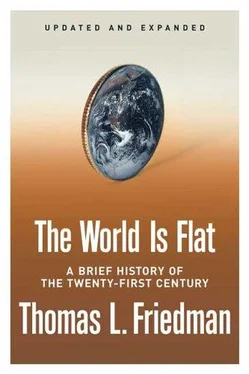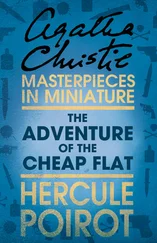The answer is context-and in particular the secular, free-market, democratic context of India, heavily influenced by a tradition of nonviolence and Hindu tolerance. M. J. Akbar, the Muslim editor of the Asian Age, a national Indian English-language daily primarily funded by non-Muslim Indians, put it to me this way: “I'll give you a quiz question: Which is the only large Muslim community to enjoy sustained democracy for the last fifty years? The Muslims of India. I am not going to exaggerate Muslim good fortune in India. There are tensions, economic discrimination, and provocations, like the destruction of the mosque at Ayodhya [by Hindu nationalists in 1992]. But the fact is, the Indian Constitution is secular and provides a real opportunity for economic advancement of any community that can offer talent. That's why a growing Muslim middle class here is moving up and generally doesn't manifest the strands of deep anger you find in many nondemocratic Muslim states.”
Where Islam is embedded in authoritarian societies, it tends to become the vehicle of angry protest-Egypt, Syria, Saudi Arabia, Pakistan. But where Islam is embedded in a pluralistic democratic society— Turkey or India, for instance-those with a more progressive outlook have a chance to get a better hearing for their interpretation and a democratic forum where they can fight for their ideas on a more equal footing. On November 15, 2003, the two main synagogues of Istanbul were hit by some fringe suicide bombers. I happened to be in Istanbul a few months later, when they were reopened. Several things struck me. To begin with, the chief rabbi appeared at the ceremony, hand in hand with the top Muslim cleric of Istanbul and the local mayor, while crowds in the street threw red carnations on them both. Second, the prime minister of Turkey, Recep Tayyip Erdogan, who comes from an Islamic party, paid a visit to the chief rabbi in his office-the first time a Turkish prime minister had ever called on the chief rabbi. Lastly, the father of one of the suicide bombers told the Turkish newspaper Xaman, “We cannot understand why this child had done the thing he had done... First let us meet with the chief rabbi of our Jewish brothers. Let me hug him. Let me kiss his hands and flowing robe. Let me apologize in the name of my son and offer my condolences for the deaths... We will be damned if we do not reconcile with them.”
Different context, different narrative, different imagination.
I am keenly aware of the imperfections of Indian democracy, starting with the oppressive caste system. Nevertheless, to have sustained a functioning democracy with all its flaws for more than fifty years in a country of over 1 billion people, who speak scores of different languages, is something of a miracle and a great source of stability for the world. Two of India's presidents have been Muslims, and its current president, A.P.J. Abdul Kalam, is both a Muslim and the father of the Indian nuclear missile program. While a Muslim woman sits on India's Supreme Court, no Muslim woman is allowed even to drive a car in Saudi Arabia. Indian Muslims, including women, have been governors of many Indian states, and the wealthiest man in India today, high on the Forbes list of global billionaires, is an Indian Muslim: Azim Premji, the chairman of Wipro, one of India's most important technology companies. I was in India shortly after the United States invaded Afghanistan in late 2001, when Indian television carried a debate between the country's leading female movie star and parliamentarian-Shabana Azmi, a Muslim woman—and the imam of New Delhi's biggest mosque. The imam had called on Indian Muslims to go to Afghanistan and join the jihad against America, and Azmi ripped into him, live on Indian TV, basically telling the cleric to go take a hike. She told him to go to Kandahar and join the Taliban and leave the rest of India's Muslims alone. How did she get away with that? Easy. As a Muslim woman she lived in a context that empowered and protected her to speak her mind -even to a leading cleric.
Different context, different narrative, different imagination.
This is not all that complicated: Give young people a context where they can translate a positive imagination into reality, give them a context in which someone with a grievance can have it adjudicated in a court of law without having to bribe the judge with a goat, give them a context in which they can pursue an entrepreneurial idea and become the richest or the most creative or most respected people in their own country, no matter what their background, give them a context in which any complaint or idea can be published in the newspaper, give them a context in which anyone can run for office-and guess what? They usually don't want to blow up the world. They usually want to be part of it.
A South Asian Muslim friend of mine once told me this story: His Indian Muslim family split in 1948, with half going to Pakistan and half staying in Mumbai. When he got older, he asked his father one day why the Indian half of the family seemed to be doing better than the Pakistani half. His father said to him, “Son, when a Muslim grows up in India and he sees a man living in a big mansion high on a hill, he says, 'Father, one day, I will be that man.' And when a Muslim grows up in Pakistan and sees a man living in a big mansion high on a hill, he says, 'Father, one day I will kill that man.'” When you have a pathway to be the Man or the Woman, you tend to focus on the path and on achieving your dreams. When you have no pathway, you tend to focus on your wrath and on nursing your memories.
India only twenty years ago, before the triple convergence, was known as a country of snake charmers, poor people, and Mother Teresa. Today its image has been recalibrated. Now it is also seen as a country of brainy people and computer wizards. Atul Vashistha, CEO of the outsourcing consulting firm NeoIT, often appears in the American media to defend outsourcing. He told me this story: “One day I had a problem with my HP printer-the printing was very slow. I was trying to figure out the problem. So I call HP tech support. This guy answers and takes all my personal information down. From his voice it is clear he is somewhere in India. So I start asking where he is and how the weather is. We're having a nice chat. So after he is helping me for about ten or fifteen minutes he says, 'Sir, do you mind if I say something to you?' I said, 'Sure.' I figured he was going to tell me something else I was doing wrong with my computer and was trying to be polite about it. And instead he says, 'Sir, I was very proud to hear you on Voice of America. You did a good job...' I had just been on a VOA show about the backlash against globalization and outsourcing. I was one of three invited guests. There was a union official, an economist, and myself. I defended outsourcing and this guy heard it.”
Remember: In the flat world you don't get just your humiliation dished out to you fiber-optically. You also get your pride dished out to you fiber-optically. An Indian help-line operator suddenly knows, in real time, all about how one of his compatriots is representing India half a world away, and it makes him feel better about himself.
The French Revolution, the American Revolution, the Indian democracy, and even eBay are all based on social contracts whose dominant feature is that authority comes from the bottom up, and people can and do feel self-empowered to improve their lot. People living in such contexts tend to spend their time focusing on what to do next, not on whom to blame next.
The Curse of Oil
Nothing has contributed more to retarding the emergence of a democratic context in places like Venezuela, Nigeria, Saudi Arabia, and Iran than the curse of oil. As long as the monarchs and dictators who run these oil states can get rich by drilling their natural resources-as opposed to drilling the natural talents and energy of their people-they can stay in office forever. They can use oil money to monopolize all the instruments of power-army, police, and intelligence-and never have to introduce real transparency or power sharing. All they have to do is capture and hold the oil tap. They never have to tax their people, so the relationship between ruler and ruled is highly distorted. Without taxation, there is no representation. The rulers don't really have to pay attention to the people or explain how they are spending their money-because they have not raised that money through taxes. That is why countries focused on tapping their oil wells always have weak or nonexistent institutions. Countries focused on tapping their people have to focus on developing real institutions, property rights, rule of law, independent courts, modern education, foreign trade, foreign investment, freedom of thought, and scientific enquiry to get the most out of their men and women. In an essay in Foreign Affairs called “Saving Iraq from Its Oil” (July-August 2004), development economists Nancy Birdsall and Arvind Subramanian point out that “34 less-developed countries now boast significant oil and natural gas resources that constitute at least 30 percent of their total export revenue. Despite their riches, however, 12 of these countries' annual per capita income remains below $1,500... Moreover, two-thirds of the 34 countries are not democratic, and of those that are, only three score in the top half of Freedom House's world rankings of political freedom.”
Читать дальше












